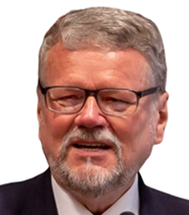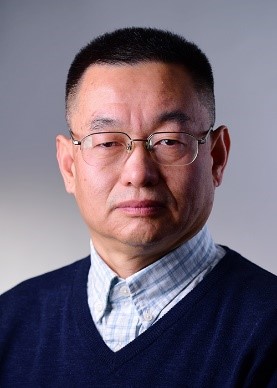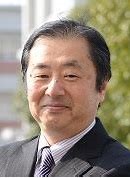Plenary Speakers

A Net-Zero Emission Energy Transition Pathway towards 100% Renewable Energy for the Philippine Archipelago (Grid and Off-grid)
Prof. Joey D. Ocon
University of the Philippines Diliman, Philippines
Talk Synopsis
Transition towards sustainable energy systems is of utmost importance to avert global consequences of climate change. Within the framework of the Paris Agreement and Marrakech Communique, this study analyses an energy transition pathway utilizing renewable resources for the Philippine grid. The transition study is performed from 2015 to 2050 on a high temporal and spatial resolution data, using a linear optimization tool. From the results of this study, technically, a 100% fossil free energy system in 2050 is possible, with a cost structure comparable to an energy system in 2015, while having zero greenhouse gas emissions. Solar PV as a generation and batteries a as storage technology form the backbone of the energy system during the transition. Direct and indirect electrification across all sectors would result in an efficiency gain of more than 50% in 2050, while keeping the total annual investment within 20–55 b€. Heat pumps, electrical heating, and solar thermal technologies would supply heat, whereas, direct electricity and synthetic fuels would fuel the energy needs of the transport sector. The results indicate that, indigenous renewable resources in the Philippines could power the demand from all energy sectors, thereby, bringing various socio-economic benefits. We then used a similar framework to generate a 100% renewable energy transition pathway for major off-grid islands in the Philippines.
Speaker Profile
Dr. Joey D. Ocon is currently a Professor and Co-Founding Head of the Laboratory of Electrochemical Engineering (LEE), and a former Chair of the Department of Chemical Engineering. Since founding LEE in 2014, the laboratory has contributed to more than 80 international publications in ISI and Scopus journals. He is currently supervising 3 postdocs, 8 PhD, and 17 MS students at the Chemical Engineering, Energy Engineering, and Environmental Engineering graduate programs at UP Diliman. He has completed eleven (11) research projects as a Project Leader and has secured more than PhP 350M of research funding since 2016, primarily as the project leader in these big R&D projects. He is a recognized national expert on batteries, fuel cells, electrochemical technologies, energy systems, and off-grid electrification. He has filed software and invention disclosures and in the process of licensing one of their technologies to industry partners.
Dr. Ocon is one of the most prolific energy researchers at UP Diliman, having been designated as the youngest UP Scientist III (2020-2022). He has more than a hundred ISI and Scopus publications. He has published papers in the world’s Q1 scientific journals such as Angewandte Chemie (IF 15.3), ChemSusChem (8.9), Chemistry of Materials (9.8), Journal of Photochemistry and Photobiology C (IF 12.9), ACS Applied Materials & Interfaces (9.2), Journal of Physical Chemistry C (4.1), Journal of Hazardous Materials (IF 9.04), Applied Energy (IF 8.8), Journal of Power Sources (8.2), Applied Catalysis B: Environmental (19.5), Renewable and Sustainable Energy Reviews (IF 14.9), Journal of Energy Storage (IF 6.0), and Renewable Energy (IF 8.0). Due to his scientific productivity, he has received multiple awards including Germany’s Green Talents Award (2015), NAST Outstanding Young Scientist Award (2015), UP Outstanding Engineering Researcher Award (2016 & 2020), PIChE Oustanding Chemical Engineer for R&D Award (2016), CHED Research Chair Award (2016-2018), The President’s Young Scientist Award of the Association of Academies and Societies of Sciences in Asia (2019), NAST-TWAS Prize for Young Scientist Award (2019), and PhilAAST D.M. Consunji Award for Engineering Research (2021). He represented the Philippines at the 2017 Annual Meeting of the STS Forum in Kyoto, Japan, and the 2015 Lindau Nobel Laureate Multi-Disciplinary Meeting in Germany. He was one of two ASEAN S&T Fellow of the Philippines in 2018-2019, hosted by DOST-PCIEERD.
Dr. Ocon is the Co-founder and CEO of Nascent Energy Technologies, a deep technology start-up developing next generation cells and battery energy storage systems. He is also a technology consultant on Rural Electrification Planning for the EU Access to Sustainable Energy Program (ASEP) Technical Assistance for the Philippine Department of Energy, Energy Storage Technologies for the First Philippine Holdings Corporation, Hydrogen Technologies for Ocean Pixel Philippines, Industrial Chemistry for Petron Corporation and Baniqued & Baniqued Law Office, and Intellectual Property for Romulo Law.

Graphical Approaches to Facilitate Low Carbon Emissions Economy
Prof Jiří Jaromír Klemeš
Brno University of Technology, Czech Republic
Talk Synopsis
Graphical tools, mostly based on physical and thermomechanical insights, play an important role in the decision-making process in engineering and can also substantially facilitate the low carbon emissions economy. They have the advantage of illustrating the process by providing clear insight which is crucial for decisions makers, the wide public and politicians. The advantage of their intuitive characteristic is beyond effective communication where the graphical end-user interface provides flexibility for adaption and modification based on the customised circumstances without coding or intensive optimisation background. This paper reviews the graphical approaches to show the developing timeline and trend of some tool series, and the method of implementing these tools for specific low carbon emissions issues. Some classic and widely used diagrams are illustrated, and their characteristics are analysed. The future and emerging direction and potential of graphical tools include the consideration of flexibility, reliability and resilience also in a low carbon emissions economy. The development of efficient concepts, animation and visualisations is also an important area to be tackled.
Speaker Profile
Head of a Centre of Excellence “Sustainable Process Integration Laboratory – SPIL”, NETME Centre, Faculty of Mechanical Engineering, Brno University of Technology – VUT Brno, Czech Republic, (23,000+ citations, 77 h-Index). The Web of Science and Publons Highly Cited Researcher, Top Peer Reviewer and Top Handling Editor. Previously at the Department of Process Integration at UMIST, The University of Manchester, the University of Edinburgh, UK and the University of Pannonia, Hungary. Awarded by the EC with Marie Curie Chair of Excellence (EXC). Track record of managing and coordinating 98 major EC, NATO, bilateral and UK Know-How projects. Research funding attracted over 46 M€. Co-Editor-in-Chief of Journal of Cleaner Production (IF = 9.297) and Chemical Engineering Transactions, Editor in Chief Cleaner Technologies and Engineering and Cleaner Chemical Engineering (Elsevier); Subject Editor of Energy (IF = 7.147) and Emeritus Executive Editor of Applied Thermal Engineering. Managing Guest Editor of Renewable and Sustainable Energy Reviews (IF = 14.982). The founder and President of 25 y of PRES (Process Integration for Energy Saving and Pollution Reduction) conferences. Seven years Chairperson of CAPE Working Party of European Federation of Chemical Engineering, a member of WP on Process Intensification. Invited lecturer at 68 universities worldwide, several times Distinguished Visiting Professor. Six times Doctor Honoris Causa, “Honorary Doctor of Engineering Universiti Teknologi Malaysia”, awarded with “Honorary Membership of Czech Society of Chemical Engineering”, “European Federation of Chemical Engineering (EFCE) Life-Time Achievements Award” and “Pro Universitaire Pannonica” Gold Medal.

How to Coordinate Crop Productivity and GHG Emission in Agroecosystem
Prof. Xiaotang Ju
Hainan University, China
Talk Synopsis
Food-system emissions account for about 30% of global greenhouse gases (GHGs) emission. Rice farming and the use of nitrogen fertilizers are the biggest sources of methane (CH4) and nitrous oxide (N2O) emissions, respectively. Meanwhile, carbon dioxide (CO2) budget should also meet the global temperature limitation. Soil carbon sequestration, and GHGs emissions associated with agronomic managements, are considered as a potential pathway for climate change mitigation. Here, we propose the following best management practices to balance the food production and agriculture’s environmental costs: (1) the total GHGs emissions from upland agricultural soils are mainly caused by N fertilizers (both production and application), while rational N fertilization (4R:Right amount, Right type, Right time, Right place) is currently the key to reduce the emissions; (2) rational N fertilization was also the most effective measure to reduce N2O emissions, and the use of nitrification inhibitor can achieve further N2O reduction; (3) reasonable inputs of other agricultural materials (irrigation, plastic film) can also reduce “Hidden CO2” emissions; (4) rational crop rotation and tillage coupled with organic manure and straw return can increase the soil carbon sequestration, and simultaneously increase soil fertility and crop yield.
Speaker Profile
Dr. Xiaotang Ju is currently a Leading Professor in the College of Tropical Crops, Hainan University. His research focuses on carbon & nitrogen cycling and greenhouse gases mitigation in agroecosystem. He is the director of the East Asia Center of the International Nitrogen Initiative and the vice director of the Nitrogen Working Group of the Soil Science Society of China. He is also an editorial board member of Acta Pedologica Sinica, Journal of Plant Nutrition and Fertilizer, Scientia Agricultura Sinica, Journal of Integrated Agriculture, and Scientific Reports. He has taken charge of more than 8 National Natural Science Foundation of China projects (including major project, key project, Project of International Cooperation and Exchange), 973 and 863 projects, Sino-UK Newton fund project, and Sino-German educational and scientific research project, etc. He was the visiting scholar or co-researcher in Canada, Germany, the Netherlands, the United States, the United Kingdom and Norway, and was invited speaker at many academic conferences both at home and abroad.
He published more than 100 SCI papers in English and 160 articles in Chinese including 4 PNAS, 2 co-authored Nature and Nature Food, and 6 were nominated as “Highly Cited Papers”. These papers have been cited more than 7000 times and the highest single citation is more than 2000 times. Based on these citations, he has been selected as Elsevier of Most Cited Chinese Researchers for 8 years from 2014 to 2021. He has won the second prize of the Natural Science Award of Ministry of Education in 2017, the first prize of Scientific Award of Soil Science Society in 2018, and Award of the Fifth Soil Science Society in 2020. The research findings of carbon & nitrogen cycling and environmental impacts have been widely recognized globally, which provides an important scientific basis for the optimal management of carbon & nitrogen and pollution control of intensive farmlands both in China and the world.
Dr. Xiaotang Ju is currently a Leading Professor in the College of Tropical Crops, Hainan University. His research focuses on carbon & nitrogen cycling and greenhouse gases mitigation in agroecosystem. He is the director of the East Asia Center of the International Nitrogen Initiative and the vice director of the Nitrogen Working Group of the Soil Science Society of China. He is also an editorial board member of Acta Pedologica Sinica, Journal of Plant Nutrition and Fertilizer, Scientia Agricultura Sinica, Journal of Integrated Agriculture, and Scientific Reports. He has taken charge of more than 8 National Natural Science Foundation of China projects (including major project, key project, Project of International Cooperation and Exchange), 973 and 863 projects, Sino-UK Newton fund project, and Sino-German educational and scientific research project, etc. He was the visiting scholar or co-researcher in Canada, Germany, the Netherlands, the United States, the United Kingdom and Norway, and was invited speaker at many academic conferences both at home and abroad.
He published more than 100 SCI papers in English and 160 articles in Chinese including 4 PNAS, 2 co-authored Nature and Nature Food, and 6 were nominated as “Highly Cited Papers”. These papers have been cited more than 7000 times and the highest single citation is more than 2000 times. Based on these citations, he has been selected as Elsevier of Most Cited Chinese Researchers for 8 years from 2014 to 2021. He has won the second prize of the Natural Science Award of Ministry of Education in 2017, the first prize of Scientific Award of Soil Science Society in 2018, and Award of the Fifth Soil Science Society in 2020. The research findings of carbon & nitrogen cycling and environmental impacts have been widely recognized globally, which provides an important scientific basis for the optimal management of carbon & nitrogen and pollution control of intensive farmlands both in China and the world.

Sustainable Waste Management towards Net Zero Emissions
Prof. Takeshi Fujiwara
Okayama University, Japan
Talk Synopsis
Localized biomass recycling at the district level can be an effective countermeasure for establishing a sound material-cycle society and toward zero carbon emissions. In Japan, since the combustible waste has been burned in the incinerator for energy recovery, the carbon emission volume from solid waste treatment is small, representing a relatively small percent of the total carbon emission in the country. The mountainous area produces a large amount of unused forest biomass, demanding large-scale biomass recycling. The biomass project of Maniwa city in Okayama prefecture has started the power generation project by incinerator dedicated to biomass treatment. A methane fermentation plant for food waste and human waste is now under construction. This plant aims to reduce 30% of the CO2 emission compared to the current treatment. Another initiative is to localize food waste valorization by the composting system in the urban area of Okayama city. The City Hall supports a range of enabling initiatives by providing a simple cardboard composting box to the households and closing the loop through the demand and supply chain management. Localized biomass recycling is an important activity that directly contributes to zero carbon emissions, requiring a concerted effort from the local government and the citizens.
Speaker Profile
Prof Fujiwara is currently a Leading Professor in the Faculty of Environmental Science and Technology, Okayama University, Japan. His research focuses on Environmental Systems Engineering and Solid Waste Technology and Management. He leads various national and international research focusing on solid waste management, including the JICA-JST SATREPS Program entitled Development of Low Carbon Society Scenarios for Asian countires (the Sub-leader for solid waste management), and social responsibilities programs in Vietnam, Cambodia and Laos. He published more than 120 ISI and scopus-indexed articles
Get in Touch
De La Salle University
2401 Taft Ave, Malate, Manila, 1004 Metro Manila
UTM Low Carbon Asia Research Centre, Universiti Teknologi Malaysia, 81310 Johor Bahru, Johor, MALAYSIA
